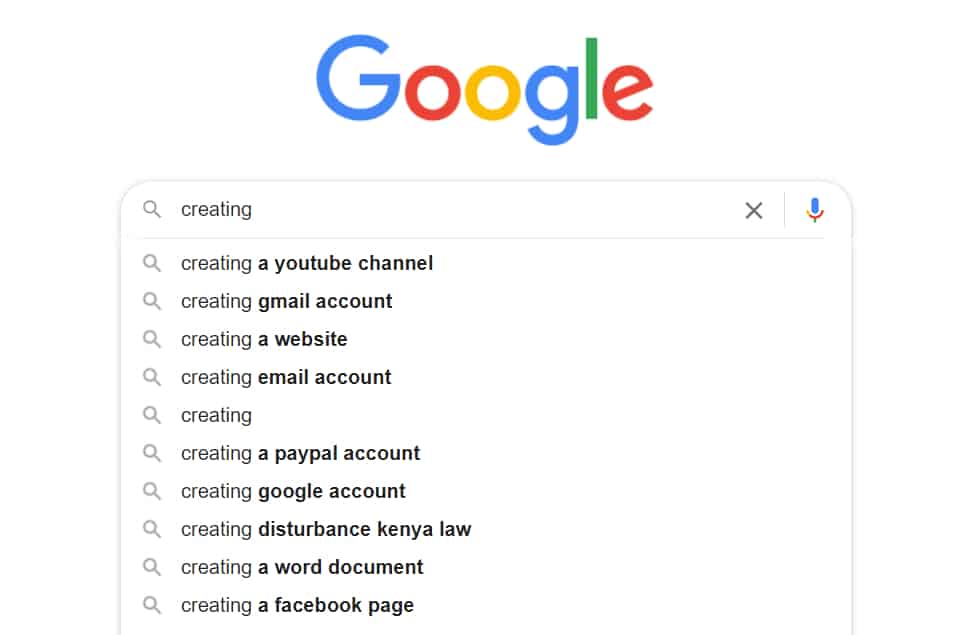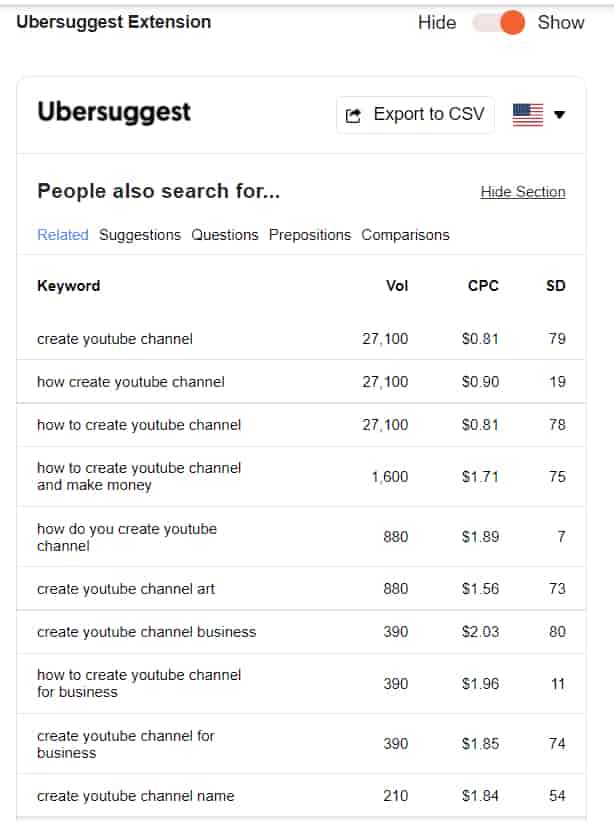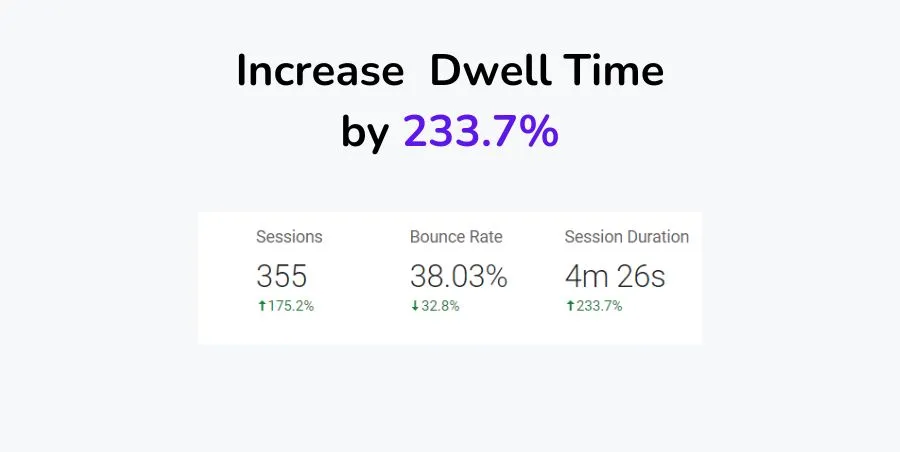Although keywords aren’t the most important factor in SEO, they are still very useful and important in 2022. And in this guide, besides sharing my top 10 keyword research tools with you, I’ll take you through the keyword research and selection process. But first:
What are Keywords? In SEO, keywords are search words, phrases, or questions people enter into search engines like Google, YouTube, Bing, and Yahoo, looking for answers.
Therefore, keyword research attempts to understand what answers your audience is looking for on search engines. Then write content that meets their interests, aiming to rank higher on the search engine results page (SERP) and drive traffic and, ultimately, conversion to your website.
Why is Keyword Research Important?
A good keyword research strategy should help you understand your target audience. For instance, know their top searches, search intents, and top questions. Then, you can write copies that answer all their questions and become an authoritative source.
Are Keywords the most Important SEO Factor?
Unfortunately, they aren’t because SEO is more complex than putting keywords on a page. Also, because SEO is always changing with search engines continuously updating algorithms, marketers must change how they use keywords.
Disclosure: This content is reader-supported, which means if you click on some of our links, we may earn a commission, but the price on your end remains the same.
1. Google Free Research Tools
Whether you’re a YouTuber or blogger, Google has free tools that are very useful in keyword research and idea generation.
You can get content ideas from YouTube by checking the frequently asked questions on your channel (or competitor’s channels). Or type the keyword on YouTube search and get free Autocomplete suggestions.
Two of my favorite keyword tools include Google Autocomplete and Google Trends.
Google Autocomplete
Using Google autocomplete is straightforward, you need to start typing, and Google will list some popular phrases people are searching for. When one types ‘creating’, you can get ideas like creating a website, tips for creating a YouTube channel or creating a Facebook page, and many more.

The only problem with autocomplete is that it doesn’t show the search volumes, CPC, locations, and keyword difficulties. It has to be used alongside other keyword research tools discussed herein.
Google Trends
Let’s say you want to write an article on ‘blog writing.’ You can head to Google Trends, and check how the keyword is trending, where it is tending (locations), and check other related queries.
For instance, the top 5 countries searching for the keyword (blog writing) are Pakistan, Nepal, Kenya, India, and the Philippines. And some of the related queries include ‘what is blog writing’ and ‘what is a blog.’

Unfortunately, Google Trends doesn’t show the exact search volume and keyword difficulty.
2. Bing Webmaster Tools
Bing, the second most popular search engine after Google, is worth optimizing your content for. And it is a free keyword research tool, but you must submit your website to their webmaster to access it.
You can check the impressions in specific countries, languages, and devices and get related keywords, questions, and newly discovered ones.

However, the tool is restricted to webmasters, so it is unavailable for YouTubers, Fiverr, and other search engines besides Bing and Yahoo.
3. Semrush: Best Tool for Beginners
Semrush is a premium (paid) keyword research tool with a free version. Thus, highly recommended for beginners and expert SEOs. It shows you the global and regional search volume per keyword, CPC, competition (difficulty), keywords variation, top questions, and related keywords.

Semrush also helps you understand the search intent to understand your audience better. It helps you track what keywords your website ranks for, so you can try it for free.
4. Ubersuggest: Idea Generation
If you’re into digital creation and marketing, you may have heard of Neil Patel. And he has a very amazing backlink checker and keyword generation tool called Ubersuggest.
And to use his tool, you have two options:
Ubersuggest on Neilpatel.com
To use this option, head to Neil Patel’s website and look for this amazing content generation tool. And then, you can key in your potential keyword and check the search volume, search difficulty, paid difficulty, and cost per click.
And most importantly, you can monitor what keyword your website is ranking for. Or key in your competitor’s link and check their top pages and keywords that bring the most traffic.

As a beginner, you can use the free option, where the tools give you three daily searches. Then you can consider the premium one as you proceed. I’ll let you decide on that.
Ubersuggest Chrome Extension
You can also use the Ubersuggest chrome extension for more convenient keyword research whenever you input a keyword on the search engines.

I prefer you install this extension, as you can check the domain authority, monthly visits, and backlinks for the website(s) ranking for the keywords you want to target. You’ll have 40 searches per day when using the free version.
That way, you can estimate the backlinks you need to compete for the keyword.
5. WordStream: Free Keyword Tools
Just like Ubersuggest, with WordStream, you can key in a keyword or domain to discover new content ideas for your blog or YouTube channel.
WordStream shows you the alternative keywords, monthly search volume, top page bid (low range), top of page bid (high range), and competition. So, it is also resourceful for paid search campaigns with Google Ads or any other ad network.

You can also download all the keywords.
6. Keyword.io: Long-tail keyword
Keyword.io is a resourceful tool for getting content ideas for your blog or YouTube channel and for Amazon product descriptions, Bing or Fiverr. It is best for long-tail keywords, which despite having less search traffic, are less competitive and easier to rank for.

However, the tool doesn’t show keyword difficulty or search volume and must be used alongside other tools like Semrush, Uberssugest, or WordStream.
7. Answer the Public: Best for Questions
A good keyword research strategy should show you the questions your audience is looking for answers to. And Answerthepublic.com helps you understand your audience better, and you can include some of these questions in your content to attract more organic traffic.

With the free version, you will have two searches per day, and if you want more, you’ll have to subscribe to the pro version. One limitation of this tool is that it doesn’t show you the search volumes, CPC, and difficulty, so it has to be used alongside other keyword research tools.
8. Long Tail Pro: Long-tail keywords
Long Tail Pro is another resourceful tool that helps you discover new or untargeted long-trail keywords that helps your site rank high in Google search results.

Unfortunately, they do not have a free version, but you can try it out.
9. Moz Keyword Explorer: Best for Beginners
Moz tool helps you check a keyword’s monthly search volume, difficulty, organic click-through rate, and priority. And it gives you keyword suggestions and their monthly volume, and a SERP analysis report that helps you check the PA and DA for the top pages ranking for the keyword.

Check it out and try it for free. And if you like it, consider the pro version.
10. Ahref Free Keyword Generator
The tool helps you with keyword research for Google, Bing, and Amazon. And it helps you with suggestions, keyword difficulty, monthly search volumes and clicks, CPC, and more information.

Before Selecting a keyword;
All 10 keyword research tools are important. You can use any of them depending on what you intend to achieve. For instance, if you’re looking for long-tail keywords or questions, the best tools include Keyword.io, Answerthepublic.com, and Longtailpro.com.
If you want to optimize your content for the Bing search engine, the best tools include Bing Webmaster and Ahref. But remember, you need more than keywords to rank on search engines. And for your keyword research to yield even better results, do this:-
- Know what location of audience you want to target
- Check the keyword search volume, difficulty, and CPC in that area
- The goal is to understand the audience, so don’t over-rely on search volumes
- Check the common questions your audience is looking for answers
- Review the sites already competing for the keyword and learn one thing or two
Conclusion
You probably know you can’t rely on one SEO tool, but I will tell you anyway. I suggest you select three to four of the following 10 keyword research tools and use them to find ideas for your blog or YouTube channel:
- Free Google Tools
- Bing Webmaster Tools
- Semrush: Best Tool for Beginners
- Ubersuggest: Idea Generation
- WordStream: Free Keyword Tool
- Keyword.io: Long-tail Keywords
- Answer the Public: for Questions
- Long Tail Pro: Long-tail Keywords
- Moz Keyword Explorer: for Beginners
- Ahref Free Keyword Generator
But don’t over-rely on keyword volume, and avoid keyword stuffing. Only target keywords that are relevant to your audience.
If you find the information resourceful, you can subscribe to our YouTube Channel and follow us on Facebook and Twitter for more updates and amazing content.
Which keyword research tools do you use, if any?

